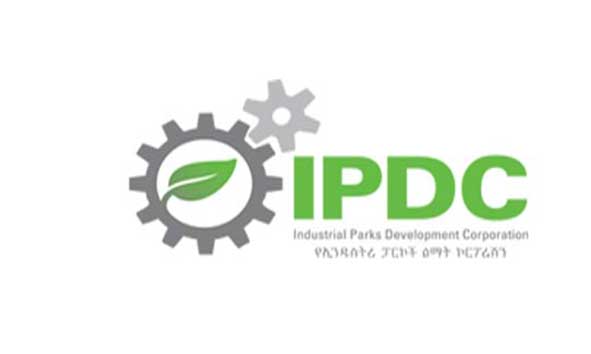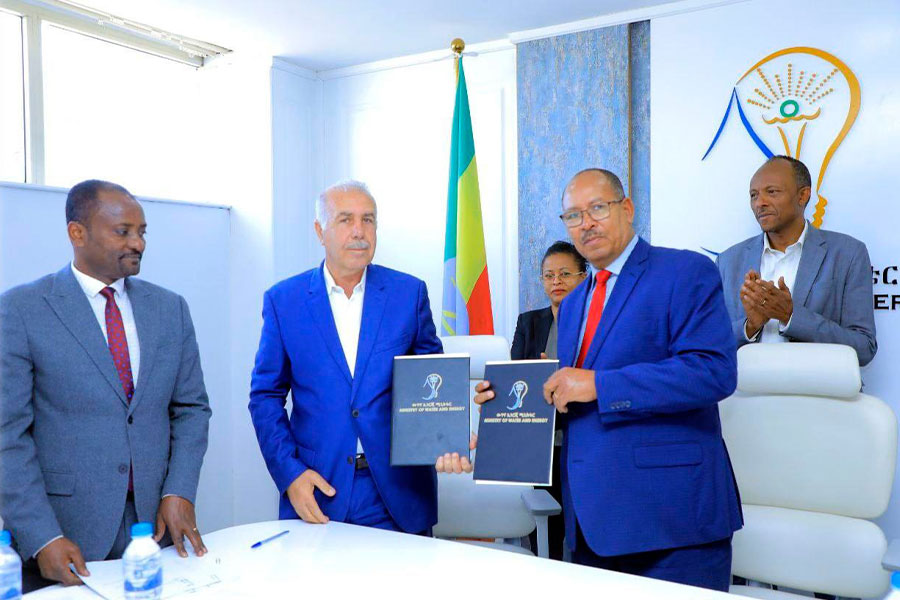
Life Matters | Dec 28,2019
Yirgalem Construction, a grade-one contractor, sealed a deal last week to build one of the capital's most expensive road projects ever undertaken. With an outlay of 1.3 billion Br, the 5.6Km road project covers a road from Ayer Tena to Alemgena Roundabout through Welete Suq. The contract value is equivalent to 232 million Br a kilometre.
Yirgalem secured the deal after outbidding other contractors after the Addis Abeba City Roads Authority (AACRA) floated a public tender in April 2021. Although the two-stage bid attracted seven construction firms, only four had submitted bid documents. First Highway Engineering Group, a behemoth China Communication Construction Corporation (CCCC) subsidiary, offered the second-lowest bid price of 2.49 billion Br, nearly double the winning offer.
The Chinese company is involved in the rehabilitation of the 54Km of riverbanks along Addis Abeba's two main waterways.
The city's roads authority informed Yirgalem Construction last week it had won the bid. In two years of signing the contract, the contractor is expected to complete the asphalt road project, which has an average width of 30m.
“I'm confident we'll finalize the project on time,” said Tamrat Wondemu, general manager and principal shareholder of the company.
Incorporated 17 years ago, Yirgalem Construction was awarded in June 2021 the contract for the seven-kilometre asphalt concrete road in the Somali Regional State at 672 million Br. The contractor, which has a capital of 150 million Br, handles more than 20 projects with six billion Birr in combined project costs.
The contract for the road project in Addis Abeba will be signed next week, disclosed Takele Luluna, deputy director-general of engineering regulatory streams at the Authority. The Addis Abeba City Administration will cover the cost of the project.
The latest bid was the Authority's third attempt at procuring the services of a contractor for the project since 2019. The Authority, led by its Director-General Moges Tibebu, saw its two previous attempts flounder due to technical issues and design reworks. Moges served as a senior project engineer at the Authority beginning in 2010 before taking the helm nine years later.
According to people close to the case, the first attempt to hire a contractor failed after bidding companies could not submit documentation and bid bonds. The Authority cancelled the second tender to revise the design work by Fortress Consulting, hired in September 2020. Established in 1998, Gondwana Engineering was selected by the Authority last month to conduct the supervision work.
The city roads authority has embarked on 12 projects estimated to cost 6.5 billion Br beginning this year. Its officials believe the cost of the latest road in Kolfe Keraniyo District is justified, for it will be a dual carriageway, each side comprising two-lane asphalt surfaced with raised walkways. The project also includes the building of structures like culverts and ancillary works.
The Authority kicked off another expensive road project two months ago, connecting Comoros St. (along with the British Embassy) and Africa Avenue (Bole Road) with an outlay of 24.5 million dollars, financed by the World Bank. The 4.5Km project, one of the five corridors the city administration plans to build to ease growing traffic congestion, has a price tag of around 270 million Br a kilometre.
Last year, the construction of the 4.9Km road project from Bole International Airport to Goro was awarded to Aser Construction at 1.6 billion Br – over 320 million Br a kilometre.
Abebe Dinku (Prof.), a civil engineer and chairperson of the construction materials and management department at the Addis Abeba Institute of Technology, observes that the rising costs associated with road projects do not necessarily mean contractors' profit margins are improving. He says profit margins remain unchanged due to cost escalation in the prices of construction inputs and the depreciation of the Birr against major currencies.
Headline inflation reached 33pc last November, according to a report from the Ethiopian Statistical Service. The double-digit inflation observed in the country over the past couple of years has led to rising in the prices of materials such as reinforcement bars (rebar), which have tripled to 95 Br a kilo since 2020. The cement price also surged by half to 700 Br a quintal in the last two years. These have forced contractors to suspend projects temporarily.
Unless the government takes concrete measures to tame hyperinflation and depreciation, the cost of megaprojects will only continue to rise, warns Abebe.
PUBLISHED ON
Feb 05,2022 [ VOL
22 , NO
1136]

Life Matters | Dec 28,2019

Fortune News | Aug 31,2019

Radar | Mar 23,2019

Radar | Jan 07,2022

Sunday with Eden | May 04,2019

Radar | Aug 01,2020

Fortune News | Dec 26,2020

Editorial | Mar 23,2024

Viewpoints | Jan 04,2020

Radar | Nov 02,2025

Dec 22 , 2024 . By TIZITA SHEWAFERAW
Charged with transforming colossal state-owned enterprises into modern and competitiv...

Aug 18 , 2024 . By AKSAH ITALO
Although predictable Yonas Zerihun's job in the ride-hailing service is not immune to...

Jul 28 , 2024 . By TIZITA SHEWAFERAW
Unhabitual, perhaps too many, Samuel Gebreyohannes, 38, used to occasionally enjoy a couple of beers at breakfast. However, he recently swit...

Jul 13 , 2024 . By AKSAH ITALO
Investors who rely on tractors, trucks, and field vehicles for commuting, transporting commodities, and f...

Nov 1 , 2025
The National Bank of Ethiopia (NBE) issued a statement two weeks ago that appeared to...

Oct 25 , 2025
The regulatory machinery is on overdrive. In only two years, no fewer than 35 new pro...

Oct 18 , 2025
The political establishment, notably the ruling party and its top brass, has become p...

Oct 11 , 2025
Ladislas Farago, a roving Associated Press (AP) correspondent, arrived in Ethiopia in...